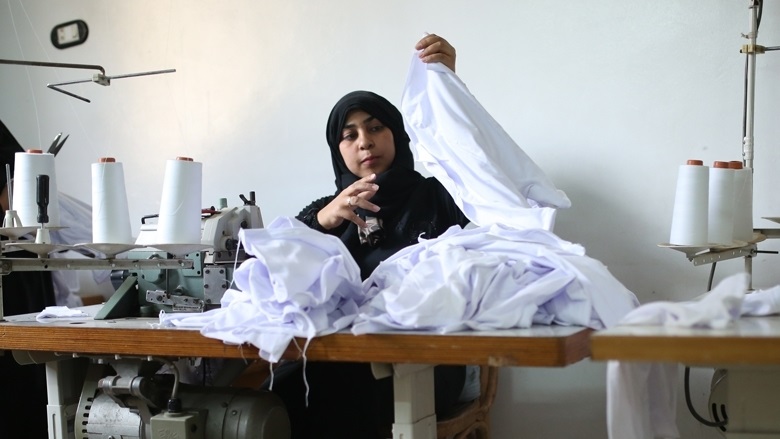“The sewing machine is my main source of income,” said Nai’ma Bassuni, a widow with four children. Bassuni received a micro- loan through the Social Fund for Development (SFD) to upgrade her small sewing studio and buy the materials necessary for her project. “I was able to raise and educate my children,” Bassuni added.
In 2014, the World Bank approved a US$300 million loan to Egypt to expand access to finance for micro- and small enterprises (MSEs) using innovative financing mechanisms, with a special focus on women and youth, as well as under-served regions.
By the end of 2015, about 70% of the loan has been disbursed and more than 70,000 jobs created. The project is set to reach more than 130,000 micro- and small enterprises, 37% of which are owned by women.
The SFD is an Egyptian entity responsible for channeling the loan to financial intermediaries—such as banks, microfinance institutions, venture capital companies, and financial leasing companies—that would ultimately reach the beneficiaries, namely MSEs.
The project, Promoting Innovation for Inclusive Financial Access, helps the SFD with the setting up of the full infrastructure to activate the venture capital component. This included creating a Venture Capital Department at SFD for the very first time, providing capacity building for the staff, and putting an investment policy and investment committee in place. Roundtable discussions, events and meetings are held regularly to introduce this to the whole microfinance ecosystem in Egypt, including new, potential beneficiaries.

